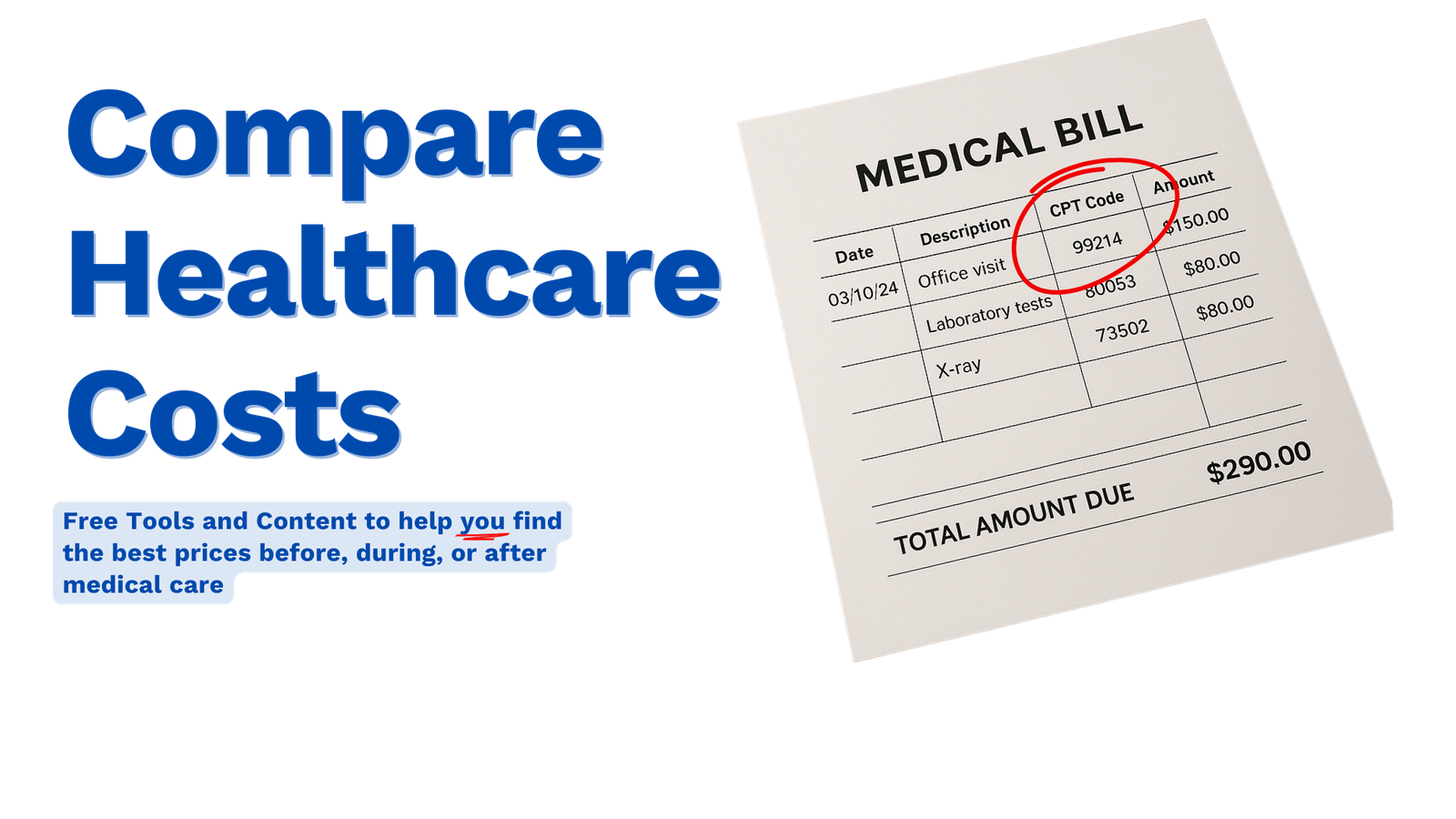- CPT Code Cost Check 🔎
- Other Free Tools ❤️
- Uninsured Cost Calculator 🤖
- Urgent vs ER Costs 💸
- Bill Fix Tool 🛠️
- FSA vs HSA Calculator 🐷
- FSA/HSA Eligibility Check ✔️
- Prescription Cost Calculator 💊
- Walgreens vs CVS Clinic Cost ⚔️
- Health Insurance Explainer ☂️
- In-Store Clinic vs. Telehealth Cost 🖥️
- Braces Calculator 🦷
- Non-Profit Hospital Help ℹ️
- 1955 ↔️ 2025 (Cost Comparison)
- Who Gets the Money? (PDF)📄
- Medical Costs ⚕️
- CPT Code Cost Check 🔎
- Other Free Tools ❤️
- Uninsured Cost Calculator 🤖
- Urgent vs ER Costs 💸
- Bill Fix Tool 🛠️
- FSA vs HSA Calculator 🐷
- FSA/HSA Eligibility Check ✔️
- Prescription Cost Calculator 💊
- Walgreens vs CVS Clinic Cost ⚔️
- Health Insurance Explainer ☂️
- In-Store Clinic vs. Telehealth Cost 🖥️
- Braces Calculator 🦷
- Non-Profit Hospital Help ℹ️
- 1955 ↔️ 2025 (Cost Comparison)
- Who Gets the Money? (PDF)📄
- Medical Costs ⚕️
Compare Healthcare Costs
Cost How Much © 2025







